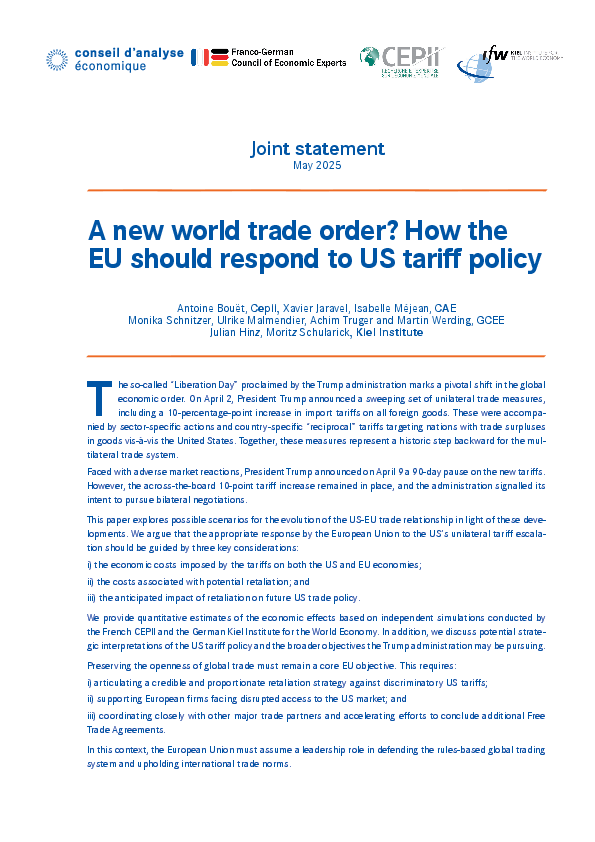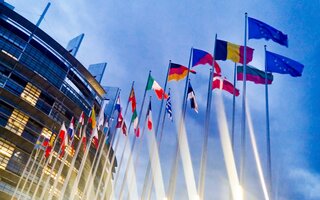Wirtschaftspolitischer Beitrag
A new world trade order? How the EU should respond to US tariff policy
Autoren
Erscheinungsdatum
JEL Classification
Schlagworte
Wirtschaftspolitik in Deutschland
Politische Ökonomie
Geoökonomie
Europa
USA
Europäische Union & Euro
Globalisierung
Internationaler Handel
Zölle
The so-called “Liberation Day” proclaimed by the Trump administration marks a pivotal shift in the global economic order. On April 2, President Trump announced a sweeping set of unilateral trade measures, including a 10-percentage-point increase in import tariffs on all foreign goods. These were accompanied by sector-specific actions and country-specific “reciprocal” tariffs targeting nations with trade surpluses in goods vis-à-vis the United States. Together, these measures represent a historic step backward for the multilateral trade system.
Faced with adverse market reactions, President Trump announced on April 9 a 90-day pause on the new tariffs. However, the across-the-board 10-point tariff increase remained in place, and the administration signalled its intent to pursue bilateral negotiations.
This paper explores possible scenarios for the evolution of the US-EU trade relationship in light of these developments. We argue that the appropriate response by the European Union to the US’s unilateral tariff escalation should be guided by three key considerations:
i) the economic costs imposed by the tariffs on both the US and EU economies;
ii) the costs associated with potential retaliation; and
iii) the anticipated impact of retaliation on future US trade policy.
We provide quantitative estimates of the economic effects based on independent simulations conducted by the French CEPII and the German Kiel Institute for the World Economy. In addition, we discuss potential strategic interpretations of the US tariff policy and the broader objectives the Trump administration may be pursuing.
Preserving the openness of global trade must remain a core EU objective. This requires:
i) articulating a credible and proportionate retaliation strategy against discriminatory US tariffs;
ii) supporting European firms facing disrupted access to the US market; and
iii) coordinating closely with other major trade partners and accelerating efforts to conclude additional Free Trade Agreements.
In this context, the European Union must assume a leadership role in defending the rules-based global trading system and upholding international trade norms.








